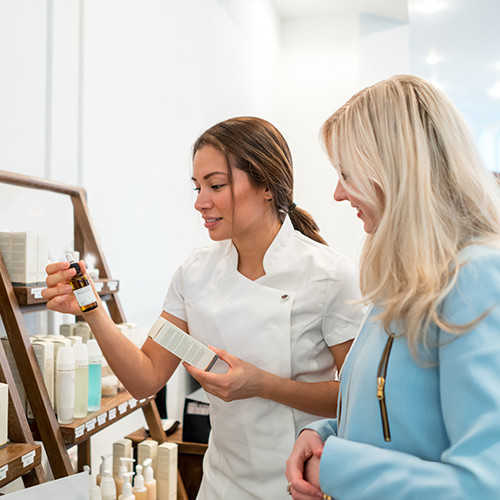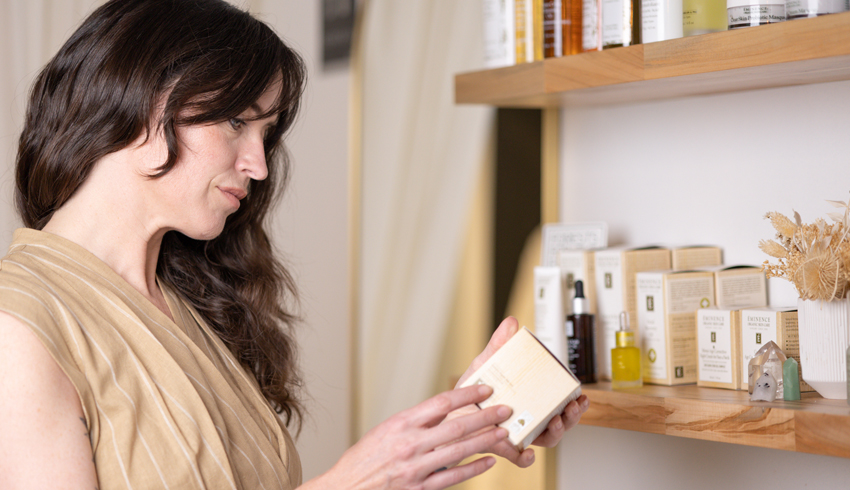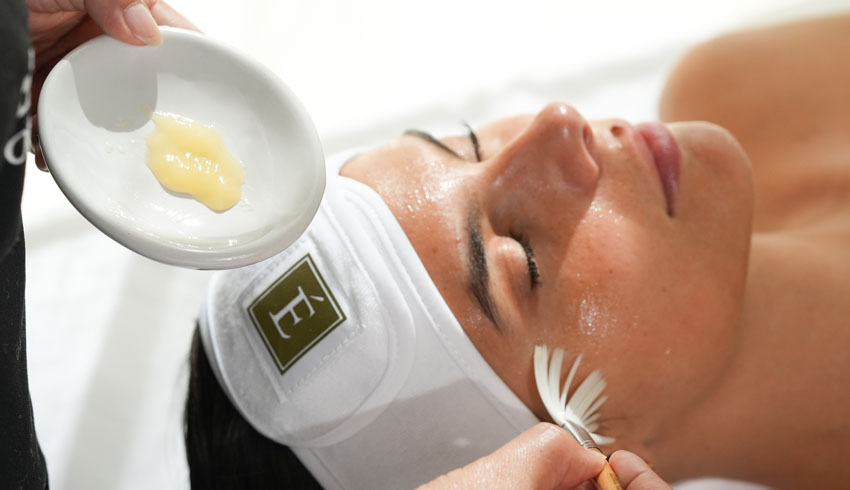
If you are a spa manager or aspire to be, you’ll know that this is a role of many talents. Between managing guests, staff, creative direction, budgeting and even bookkeeping, spa management requires a wide array of skills. But what skills should you hone in on? What will help you feel successful and fulfilled? We spoke to Eminence Organics PR Manager, Jessica Timberlake to share her valuable insights from her time as a spa director in Southern California. Now on the Board of Directors for the International Spa Association (ISPA) and the Canadian Ambassador for Global Wellness Day, read on to see the skills she cites as invaluable.
Leadership
Being a strong leader is a foundational skill for spa managers. Leading successfully creates a more engaged team atmosphere, diminishing tension and fostering a warm, calm environment that your guests will notice. Explaining why this is important, Jessica says:
“Your staff will look to you as the compass, leading them through each day. Not only will you support them in spa operations, but you’ll mentor them through leading by example. The right leadership is critical to retain staff and keep your team engaged. If your spa director role is at a hotel or resort, leadership is part of the equation beyond the spa walls. You’ll be a role model across the property, championing the guest experience and supporting other executives.”
Jessica’s recommendation to give you inspiration? She says, “45 million viewers can’t be wrong. Carve out a few minutes and sink into this epically influential TED talk by Simon Sinek.”
Giving And Receiving Feedback
Learning how to give and receive feedback is becoming more and more crucial for managers in every field. According to a survey of business professionals by PwC and cited by LinkedIn, “nearly 60% of survey respondents reported that they would like feedback on a daily or weekly basis — a number that increased to 72% for employees under age 30.” Jesssica has noted this as a crucial area of spa management, sharing:
“To mentor and grow your team, and yourself as well, learning to deliver feedback in a neutral way that will ultimately support your staff in their role is essential to keeping your team engaged. Consider how to receive feedback as well as from who — is it the general manager or the owners of the hotel? If you own your own spa, is your staff giving you feedback? How do you interpret it?”
When asked how to improve, Jessica suggests you “take a course on LinkedIn Learning and then practice. Before going into a feedback conversation, take time to write your thoughts down and get organized. Play out the scenario with a trusted colleague if it’s a particularly sensitive situation.”

Networking
In addition to enhancing your soft skills inside the spa, embracing the community outside your own spa helps you be a better spa manager. As noted by Forbes, networking is important for your career as it helps create a positive view of your business, fosters an exchange of creative ideas with others in the industry and builds relationships and opportunities with potential clients and employees. Jessica explains:
“The spa industry is warm, welcoming and friendly. Whether you’re a veteran in the industry but new to management, or brand new to the spa world — get connected. The resources and connections are limitless once you reach out. Networking with your community has perks such as driving business from other locals.”
There are many ways to start networking right away. Tradeshows are an excellent avenue to meet fellow professionals and brush up on your industry knowledge. Jessica adds: “Attend your local Chamber of Commerce mixers. Join a trade organization, such as the International Spa Association, which has dozens of invaluable benefits including an industry best practices guide, research, educational materials and an annual conference where you can grow all of your professional skills and see what products are the latest and greatest.”
Retail Savvy
As well as honing your soft skills, business skills are essential when managing a spa. Being retail savvy is crucial to your spa’s success, as retail sales typically make up a large percentage of your overall revenue. Jessica advises:
“One of the number one opportunities spa managers state as a pain point is retail sales ‘left on the treatment table.’ According to best practices, ideal retail sales should track 30% to 50% of your top line revenue.”
She recommends leaning in and accepting help from experts around you to improve this skill: “Look to your vendor partners for retail sales advice. They’re experts in merchandising, provide sales training and may even offer incentives for your guests, such as a gift with purchase to spur sales.”

Marketing
Put your retail savvy to good use by brushing up on your marketing skills. Whether you realize it or not, traditional marketing is a large part of the day to day tasks of a spa manager. Jessica puts this perfectly, saying: “From seasonal specials, holiday treatments, spa menu design, group packages, trend forecasting — you will do it all!”
To ensure you’re staying modern and on top of the latest industry trends, Jessica keeps it simple:
“Read! Make an array of trade publications part of your monthly required reading. Magazines sent to spa professionals such as American Spa, Skin Inc, DAYSPA and Les Nouvelles Esthetique provide invaluable insights into maximizing your marketing potential.”
Financial Fluency
With a strong retail strategy in place, ensure you have an understanding of how it affects your bottom line. To lead your team and business in the right direction, financial fluency is vital, enabling you to plan both short and long term goals. Jessica highlights this, saying:
“Your math teacher was right — numbers don’t lie. Knowing at a glance whether your margins are up or down, your retail:treatment ratio is on point and what your cost of goods sold is will give you immediate intel into the fiscal health of your spa and lay the path for where you need to focus your energy — is it inventory management, treatment sales, reducing costs or remixing your spa packages?”
If finance is out of your comfort zone, don’t fret — you’re not alone. There are many opportunities to learn, whether self-led, taking online courses, or attending community programs. Jessica’s recommendation: Study. She says: “Run all of the financial reports from your spa’s software system and dig deep. Pony up your skills by taking a financial management distance-based course through the ISPA and the American Hotel & Lodging Educational Institute for less than $100 USD.”
We hope these key areas help you in developing your own career goals and learning plan. Are you a spa manager or director? What else do you think is crucial when working in the industry? Let us know in the comments below or join the conversation on social media.



